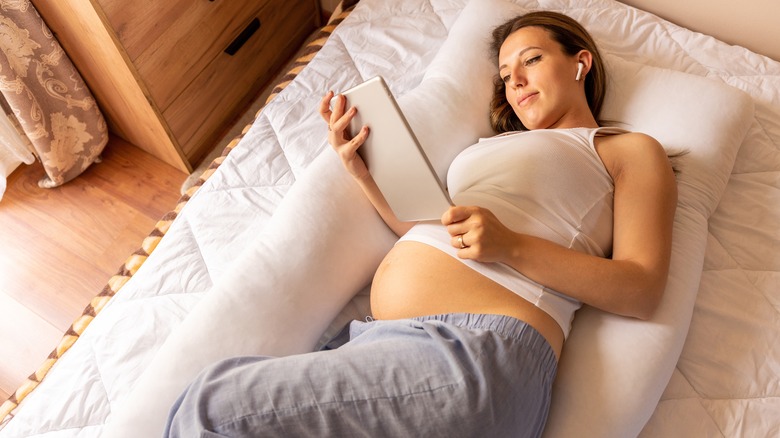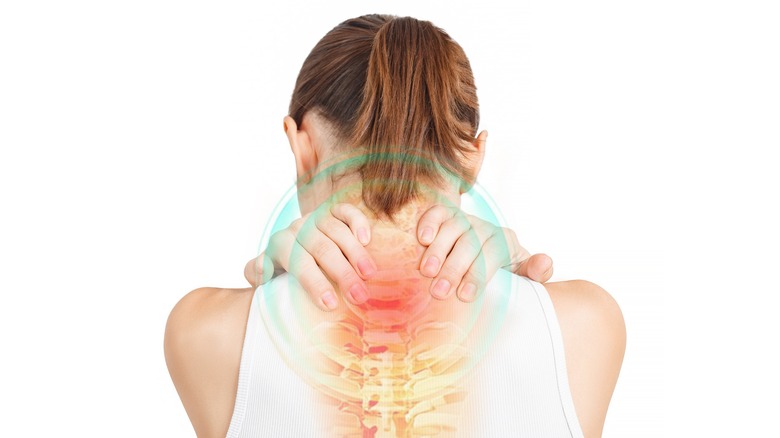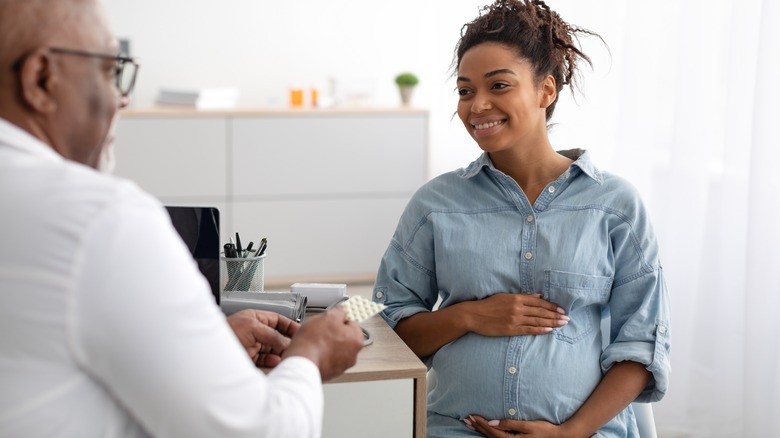Your Bones May Be Forever Changed After Pregnancy
Pregnancy is often touted as one of the most magical times in a person's life, but it's also a period of deep-seated change. Life shifts in irrevocable ways, as does the pregnant body and brain, writes BBC Science Focus.
One part of the body that undergoes dramatic change during pregnancy is the bones. According to a 2022 study published in the journal PLOS ONE, there was a significant decline in calcium and phosphorus in the bones of female macaques, a type of monkey, after giving birth. There was also a notable drop in magnesium levels after breastfeeding. This was compared to the bones of male macaques and females who hadn't yet become pregnant.
The study used electron microscopy and energy-dispersive X-ray analysis to look at the bones of seven primates who had died of natural causes, per PLOS ONE. Although more work is needed to investigate whether these findings can be replicated in other animals, they offer a fascinating window into the impact of reproduction on the skeleton, explain researchers.
How pregnancy affects the bones
During pregnancy, the skeletal system loses significant bone mass and density, notes a 2019 study published in Scientific Reports. This deterioration is explained by the intense nutritional demands of the developing fetus, particularly during the third trimester, details the National Institute of Health.
Intestinal calcium absorption increases when a person is pregnant so as to ensure that the body can provide enough calcium-rich milk for the unborn child, per Scientific Reports. This has a knock-on effect on the quality of bones, which hold 99% of the body's calcium content (via Harvard T.H. Chan).
Once the baby is born, breastfeeding continues to put enormous pressure on the bones, reports a 2020 study from the journal Endocrine Connections. During lactation, calcium might be drawn from the bones to meet the infant's calcium needs. As a result, many people experience up to a five percent decrease in bone mass while breastfeeding.
Right after giving birth, estrogen levels also plummet which can exacerbate bone loss, per Endocrine Connections.
For many, bone density is gradually restored once breastfeeding ends, explains the National Institute of Health. This can happen just a few months after weaning. For some, however, pregnancy and breastfeeding permanently change the composition and condition of their bones, per Endocrine Connections.
The risk of osteoporosis
In rare cases, pregnant or breastfeeding individuals can develop a severe form of osteoporosis known as pregnancy and lactation-related osteoporosis (PLO), details a 2021 study from BMC Musculoskeletal Disorders. This is when calcium loss during pregnancy or breastfeeding causes your bones to become weak and brittle and puts you at a greater risk of breaking a bone. Back pain is one of the most common symptoms of PLO, mostly occurring in later trimesters and early stages of lactation. Some also experience fractures, which tend to appear in the spine or hip. If this happens, be sure to seek medical care immediately.
Those who are pregnant or breastfeeding should aim to have a dietary calcium intake of 1,000 mg a day, recommends the National Institute of Health. This should be 300 mg higher for pregnant teens who are even more vulnerable to bone loss. It's also crucial to keep vitamin D levels topped up to allow the body to absorb and use calcium (via Scientific Reports). This important nutrient helps aid the natural bone-recovery process after pregnancy. A variety of calcium and vitamin D-rich foods should be included in your diet and you may also be prescribed supplementation.



